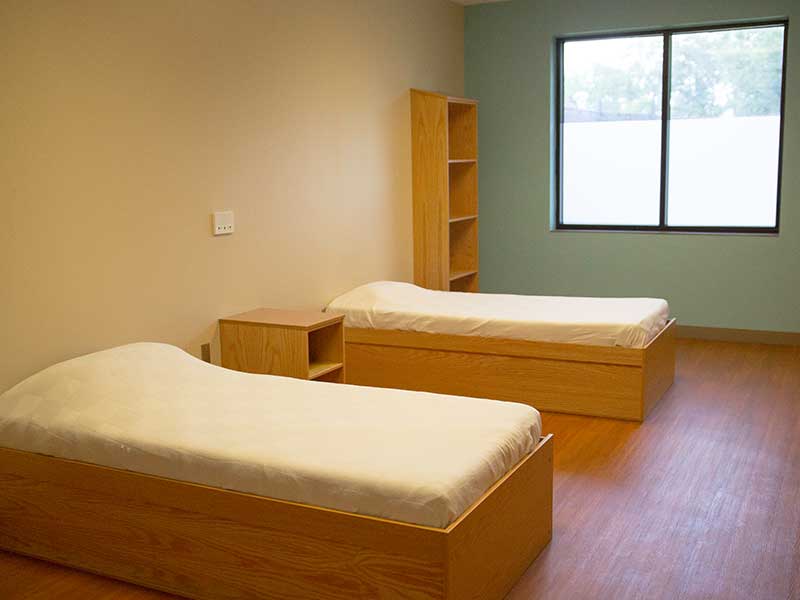For some, a change in life can signify the start of a new adventure. For others, certain changes could also mean that something must be overcome in order to resume life in a healthy manner.
Understanding Adjustment Disorder
Learn about adjustment disorder
Regardless of the new challenges that lay ahead, alterations to routine, life status, or new roles in life require people to adapt and keep going as best they can.
However, if you have a new baby, get married or divorced, lose a loved one to death, move, or start a new career, you must be able to do so with minimal disruption after a certain amount of time has passed. Additionally, your child must also be able to do the same, especially in instances when he or she changes schools, experiences a parental divorce, or endures some other life change that requires him or her to adapt in some way. Being unable to get used to a new change in life and experiencing an impairment in functioning that begins to affect several areas of life can often mean that adjustment disorder is now present.
Adjustment disorder is a mental health disorder that is caused by an alteration in life that a person can’t adapt to for one reason or another. When this disorder is present, you may be unable to carry out your responsibilities at work, at home, and for the benefit of your family. When young people grapple with this disorder, they may be unable to perform well in school, maintain healthy relationships with friends, or avoid other such problems. Given the fact that this illness further prevents a person from being able to adjust to any kind of life change, it’s important for effective treatment to be sought. Failing to do so or delaying treatment can make the sleep disturbances, emotional turmoil, and possible appetite changes that occur with this disorder longer-standing concerns. Fortunately, adjustment disorder is a very treatable illness, which makes it quite possible for you or your child to heal in a life-changing way.
Statistics
Adjustment disorder statistics
Of all people admitted to inpatient treatment, nearly 50% of them meet diagnostic criteria for adjustment disorder. Female adolescents and adult women are more likely to struggle with this illness than are male adolescents or adult men, and the vast majority of these individuals struggle with other mental health concerns that the same time. Unfortunately, individuals, both young and old, often engage in self-injury and/or substance abuse when effective treatment is not received, which is why it’s important to consider seeking professional help if you or someone close to you is struggling to adjust to some change or changes in life.
Causes and Risk Factors
Causes and risk factors for adjustment disorder
The onset of adjustment disorder symptoms is directly linked to experiencing some sort of life change(s) that requires a person to have to adapt to said change or changes. However, there are certain influences that can make you or your child more vulnerable to eventually struggling with this disorder. Consider the following concepts:
Environmental: Exposure to certain circumstances and situations can make suffering from adjustment disorder more likely. For example, if you or your child is regularly surrounded by chaos, ongoing stress, violence, and/or crime, a change in life could be too overwhelming to adapt to and cause adjustment disorder symptoms to emerge. This notion is especially true if you or a young person in your life lacks healthy support and adequate coping skills.
Risk Factors:
- Surviving a trauma
- Suffering from a medical condition
- Retiring from a job
- Moving to a new community
- Leaving or reentering a parental home
- Having a new baby
- Going through a divorce
- Experiencing the loss of a loved one
- Experiencing the end of a romantic relationship
- Changing schools
- Becoming part of a blended family
Signs and Symptoms
Signs and symptoms of adjustment disorder
Depending on the precipitating event(s) that caused the onset of adjustment disorder symptoms, the obviousness of this illness may or may not be as clear as you might think. If you’re concerned that you or your adolescent child is grappling with adjustment disorder, note the presence of any of the following symptoms and seek an assessment with a mental health professional to get a conclusive diagnosis:
Behavioral symptoms:
- Tearfulness
- Onset of self-harming behaviors
- No longer participating in activities that were once enjoyed
- No longer adhering to daily responsibilities
- Making attempts at suicide
- Failure to attend work or school
- Emotional outbursts
- Drop in performance at work or school
Physical symptoms:
- Sleep disturbances
- Persistent headaches
- Muscle tension
- Chest pains
- Changes in eating patterns
- Bodily aches and pains
Cognitive symptoms:
- Problems with memory
- Poor decision making
- Poor concentration
- Inability to make sound judgment
Psychosocial symptoms:
- Hopelessness
- Feelings of nervousness
- Excessive feelings of worry
- Emotional instability
- Depression
- Anxiety
Effects
Effects of adjustment disorder
Allowing the symptoms of adjustment disorder to remain present and affect your or your child’s life could lead to several adverse effects. What’s important to know, however, is that the following consequences can be avoided all together by partaking in treatment at a clinic:
- Worsening of adjustment disorder symptoms
- Suicidal thoughts
- Substance abuse
- Self-harm
- Onset of symptoms of other mental health disorders
- Job loss
- Disturbed interpersonal relationships
- Decreased performance at work or school
- Decline in social interactions
- Academic failure
Co-Occurring Disorders
Adjustment disorder and co-occurring disorders
Adjustment disorder often occurs at the same time as other mental health concerns. Among the many that could affect your or your child’s life, the following are the disorders that could require treatment in the event services are sought to alleviate the symptoms of adjustment disorder:
- Specific phobias
- Social anxiety disorder
- Panic disorder
- Obsessive-compulsive disorder
- Generalized anxiety disorder
- Depressive disorders
- Bipolar disorder












